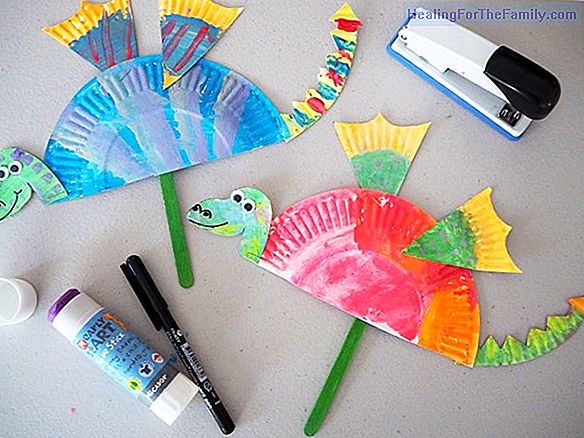How to encourage the desire to study in children
The course begins and our children join the study routine. Perhaps we have already begun to detect the first signs of attitudes that showed in the past course: sloppiness or reluctance at the time of getting to do homework and study. Or maybe we just want to avoid previous mistakes or improve the re
The course begins and our children join the study routine. Perhaps we have already begun to detect the first signs of attitudes that showed in the past course: sloppiness or reluctance at the time of getting to do homework and study. Or maybe we just want to avoid previous mistakes or improve the results of the previous course. In any of the cases what can we do to encourage children's desire to study?
2 key guidelines to promote children's desire to study

1. Organization
One of the fundamental bases for our son to feel comfortable studying, to encourage the desire to study children, is the organization. Children always need to know what they are going to do. This gives them confidence because it makes foreseeable the next steps to take, therefore, they feel protected and confident. So make sure you have made a schedule with the time you will devote to studying each afternoon, including extracurricular activities. Help him to do it in a realistic way and without stress.
Once you have done it, look together to have enough space for everything you need. It is important that what you put in your schedule can be fulfilled, because it will give you a positive sense of achievement. Also watch the time for rest after school, snack and play or recreation. Remember that he is a child and needs to play. The game is a fundamental part for their cognitive and emotional development. Apoyo 2. Support in the difficulties
Every time we accompany our son to a difficulty in the study, we are helping him to build step by step the ladder of his self-esteem, as well as to build the handrail of his capacity for self-improvement. Because self-esteem also includes the ability to successfully overcome obstacles. And our support is essential to achieve it.
When he says something like "I can not deal with these math problems, they are very difficult", we can sit a few minutes with him and talk about what is going through his mind. In these difficult times our children need to know that they have our attention and support. We can put aside everything we are doing, our phone or any other matter and listen to their doubts, their words of oppression.
We let you know that we are with him or her to see together what solutions we can find. It is not that we are going to solve everything, because it often happens that he or she has the keys to the solution, and that is why it is important to listen carefully to everything they tell us. Recently, a teenage high school student told me how this year when she started the course she had a lot of difficulty with mathematics, unlike the past year, which was easy for her. When we talked about what she could do, she told me that her teacher insisted to the students that they could ask them questions at recess time; It was an extra possibility that he was offering them and that she was not using. So our conversation made it clear that I should take that help as soon as possible.
In our educational work of parents it is useful to always convey that the difficulties are minor when we talk about them and we express what worries us. Putting it into words clarifies ideas, and from there it is easier to find solutions. You can take the opportunity to talk with your child about what has been difficult for you in your work or in your daily tasks and how, with this personal clarity along with your determination, you have managed to solve it. Your support and example will be the best impulse to continue successfully in their studies and feel attracted to give the best in them.












